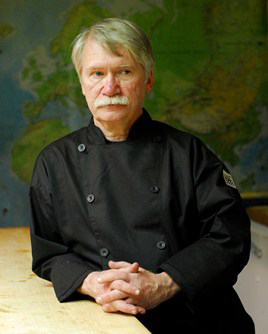Think Tank: Creating Value in Culinary Education, Part 1
09 December 2013
 Graduates need to crawl before they walk and walk before they run. What are the skill sets that chefs and restaurateurs expect your students to have when they start their employment? Can your students meet those expectations?
Graduates need to crawl before they walk and walk before they run. What are the skill sets that chefs and restaurateurs expect your students to have when they start their employment? Can your students meet those expectations?
By Paul Sorgule, MS, AAC
Designing a culinary program is no different than developing any other sound business with potential for growth. The key is to focus on two primary areas as a start:
- Identifying the need
- Envisioning the opportunities
I would encourage all those responsible for the health and viability of a culinary program to assess their curriculum with these two areas in mind. First, does your program adequately address the current needs of the industry that it serves? Have you engaged this industry in the process of ensuring that the content and measureable results meet the skill sets that are critical for entry-level culinarians? Are your graduates “kitchen ready”?
Although all culinary programs are mindful of preparing graduates for a career that brings them to positions of greater responsibility, graduates must first demonstrate their ability to function as part of a kitchen team. Graduates need to crawl before they walk and walk before they run. What are those skill sets that chefs and restaurateurs expect your students to have when they start their employment? Do you engage industry leaders in identifying those skill sets and is your curriculum designed to adequately address them?
Employers have an expectation of any student who graduates from a culinary program. Can you guarantee that your graduates meet that expectation? “Guarantee” is a term that is rarely used in education, yet your reputation as an institution, your ability to attract the best possible students and, in the end, provide them with the best possible job opportunities rests with your ability to meet the expectations of those employers and the students who graduate from your institution.
Are you adequately measuring feedback from employers regarding student performance on internship and as full-time employees and do you use this feedback in the process of curriculum revision and measuring student performance?
The skills that chefs and restaurateurs seek in graduates are attainable through a program that incorporates serious repetition, benchmarks of high expectation and measurement that ensures students can perform these skills with reasonable speed and dexterity under minimal supervision (ACF certification measurement level). Is this the case in your program?
Once on the job, your graduates will use these skill sets as a baseline for fine-tuning their abilities and setting the stage for career growth. It will be their ability to perform at the highest level from the start that defines the rapidity with which they will grow into leadership roles.
To this end, any program must also provide ample vision for what may lie ahead. In this vein, curriculum leaders must also have their thumb on the pulse of future trends and directions that the food industry will be taking.
As you assess your program and the value statement that it is being created, you should be assessing faculty involvement in industry organizations with an eye to the future. Different program tracks, future-thinking classes, electives and alternative internship opportunities may give students an opportunity to set goals beyond the kitchen line as they seek your guidance in mapping out their future. This, too, is the role of a program that clearly defines a value statement that sets it apart from the competition, makes the program highly marketable, and attracts the support and admiration of the industry it serves.
Each month we will look at another factor that impacts the value of your program and hopefully provide a springboard for lively discussion through “The Gold Medal Classroom.”
Paul Sorgule, MS, AAC, president of Harvest America Ventures, a “mobile restaurant incubator” based in Saranac Lake, N.Y., is the former vice president of New England Culinary Institute and a former dean at Paul Smith’s College. Contact him at This email address is being protected from spambots. You need JavaScript enabled to view it., www.harvestamericaventures.com.
